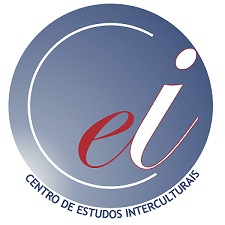
The Centre for Intercultural Studies invites the academic community to attend the Masterclass of MA in Intercultural Studies for Business taking place on 19 and 21 of April at 18:30, on rooms 102 and 011.
Wednesday, April 19, 18:30, room 102:
Izabela Franckiewicz-Olczak (University of Lodz)
“The art matters, the art counts… The value of art in the perspective of markets and cultural policies”
There has been a radical change in thinking about art. For centuries, it was maintained that art should only have an autotelic, symbolic, and pure aesthetic value. The artist, on the other hand, was perceived in terms of an above-average genius, not caring about mundane matters.
The twentieth century brought changes in art which, on the one hand, questioned its artisanal/craft nature in the field of aesthetics (e.g. the development of conceptual art, ready-made, new media art, where manual skills are less important), and on the other hand, it was involved in the market machine, not only through the art market, but also policy (e.g. cultural policy, creative industry). The lecture focus on the condition of nowadays art and the role of artists in context of art market and policy.
Izabela Franckiewicz-Olczak: sociologist, media scientist, Assistant Professor at The Department of Sociology of Art, University of Lodz. The author of the books: Colour, Sound and Rhythm. The Relation Between Sound and Vision in New Media Arts and Interactive Art. Social Context of Perception. Her research interests focus on new media, contemporary art, the problem of democratisation of art and institutional aspects of art. Contact: iza.franckiewicz@uni.lodz.pl
Carina Vitória Sá (alumni of the MA in Intercultural Studies for Business)
“Case study: How to create a more sustainable culture: Project work”
Sustainability is an increasingly important topic especially now that the planet is going through a critical phase with the increase of pollution, which has brought negative consequences such as the emerge of diseases, natural disasters, shortage of natural resources and raw materials, and the extension of some animal species and plants. For these reasons there is a need to change human behaviour to lessen the impact on the environment and control its negative consequences. One way of mitigating the impact on the environment is to act in the business world, once it has a great impact on the environment. In Portugal, despite the government implementing laws to reduce pollution levels, there is a lack of knowledge about sustainability on by the business leaders, which leads companies to fear that sustainable measures harm profits. This project was carried out with the aim of reducing the environmental impact of the company Colunex through the implementation of a sustainable culture that increased the environmental awareness of its leaders and employees and reduced the waste created without harming the company’s profits.
Friday, April 21, 18:30, room 011:
Joana Costa (alumni of the MA in Intercultural Studies for Business)
“The Merging of the cork industry with industrial tourism: WOW – Planet Cork”
My internship took place at the “World of Wine” in Vila Nova de Gaia, more specifically at the museum experience “Planet Cork”, between January and May 2022. Besides describing the experience as an intern at the “World of Wine”, and the activities developed during this period, this communication aims to make a theoretical approach to the cork business, as well as to Industrial Tourism in Portugal, namely within the scope of the cork industry. The choice of these theoretical themes was made based on the knowledge I acquired during the internship at the museum experience “Planet Cork”, since its aim is to deconstruct the cork sector and the cork industry, from the extraction of the raw material to the creation of a final product. Since it is possible to develop tourism units based on an economic activity as relevant for Portugal as the cork industry, this communication analyses how industrial tourism in the cork sector is explored in Portugal and the space that still exists to further develop and promote this side of tourism.

